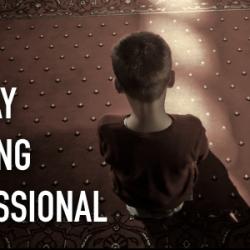“I’m a great believer in self-deception. If you asked me what makes the world go round, I would say self-deception. Self deception allows us to create a consistent narrative for ourselves that we actually believe. I’m not saying that the truth doesn’t matter. It does. But self-deception is how we survive” Errol Morris, documentary filmmaker, The Fog of War, Tabloid.
I would much rather listen to somebody who is trying to figure out what they think, than somebody who already knows what they think. I’d rather eaves drop on someone who is making up their mind, than somebody whose mind is already made up. It’s why I can’t watch to Fox News. In the first chapter of his book Eating the Dinosaur, Chuck Klosterman plays around with why this might be.
He starts by asking a simple question: Do you really know what you think? If the mind exists somewhere inside my own body, then shouldn’t I have better access to my own mind than anyone else does? Shouldn’t I be able to question my own mind, and get more honest answers from myself than any other questioner? The answer may not be as simple as you think.
We are all constantly attempting to construct our own identity. The question in the back of our minds is constantly “Who am I?” It’s an existential constant.
One of the ways we construct identity is by talking about our lives. We tell stories, share opinions, and talk about our lives. Say you are at lunch with your colleagues. When you each share snapshots of your own lives, you do this in part to build self-identity. When you tell a story about your home life, you are saying “This is part of who I am–part of how I see myself.” When you talk about the world and give your opinion, you do this in part to to build your own reality. When you talk about todays news, you are saying, “This is what I think reality is like.”
What’s fascinating about this sharing, in Klosterman’s opinion, is that as we do this we constantly edit. We don’t tell everything about our lives. We just tell the parts we want each other to know. The way I share an opinion about a political event with an extremely conservative friend, might be very different from what I would say to a liberal feminist. Klosterman says we do this not primarily for others, but for ourselves. Like the stars of our own reality show, we are constantly attempting to project our own identity out into the world.
Hence we are not very accurate in the way we tell stories about our lives, and about the world. We constantly edit what we think about our own stories, and the things we see happening in the world. Nothing we say is objective, because we are not neutral observers of our lives. We are players. We have a point of view, and it is not unbiased. So we are saddled with unavoidable subjectivity. We have perspective, our perspective. And it is inescapable. We are walking reality distortion fields bumping into one another.
The reason we are constantly editing our lives is that we have a deep need to feel consistent. We need to feel as though our lives are conforming to a coherent narrative. So we will do everything we can to shape our perception of actual events to fit that narrative, including edit our own perception of reality. We edit the way we talk about ourselves. We edit our account of “what really happened” when we had that conversation with our boss. We edit the details of a news event to conform to our opinion about it. We edit the words that come out of our spouses mouth in the middle of an argument.
We are constantly editing our perception of reality so that it will match our preconceived narrative about who we are as persons. In that way, we are all exactly like Fox News. We have an agenda. And that agenda colors everything about our perception of reality and the way we engage the world.
This is why I’m instinctively averse to people who think they are always right. I’m instantly skeptical of someone who purports to always know exactly what they think. I’m talking about myself here as well. The more certain I hear myself sounding, the more skeptical I am of my own opinion.
Only a person who is deeply self-deceived would claim to always be right, and always know the truth about what’s happening in their world. This does not mean I think truth doesn’t matter. In fact, I think the truth is of ultimate importance. I just don’t trust my ability (or yours), to sum it up accurately. Nobody can be right about everything all the time. So we should probably be a little more humble about everything.
This is why I would rather talk with somebody who is still deciding what they think yet about any given issue, than with somebody who is absolutely convinced they are right. The former is more honest and real. The latter is a projection of personal identity.
Morris again, as quoted by Klosterman,
“I don’t feel like I know myself, let alone the people I interview. I might actually know the people I interview better than I know myself. A friend of mine once said that you can never trust a person who doesn’t talk much, because how else do you know what you are thinking? Just by the act of being willing to talk about oneself, the person is revealing something about who they are.”
So, when I talk about my life, I’m not revealing who I am so much as I’m revealing who I want you to think I am. And your reaction will be slanted–edited to fit with your own version of reality. In other words, your reaction will not be based solely on reality either. It will be based on what you need reality to be in order to feel consistent about your own personal narrative.
Reality is reality. But our perceptions of reality are all very dynamic and fluid.
This is why it is interesting to listen people who are still trying to make up their minds, and boring to listen to someone who thinks they are right. I’m not even convinced they really know what they think, because what they think about what they think is necessarily a distortion.
Perhaps this is also why I’m drawn to mystery, and wonder, and awe. I don’t want to get rid of the category of truth, I just want it to be an open ended conversation. I’m a Christian, so ultimately I think Jesus is the truth, and this truth is the unavoidable reality into which we will all eventually bump. But my ability to describe this reality is fraught with self-deception. So the conversation must keep going. Only then can we all spiral closer and closer to that which is really real. The moment we freeze, solidify, harden, and close off, we lock ourselves inside our own unreality. That is, by the way, the very definition of what we call hell.












